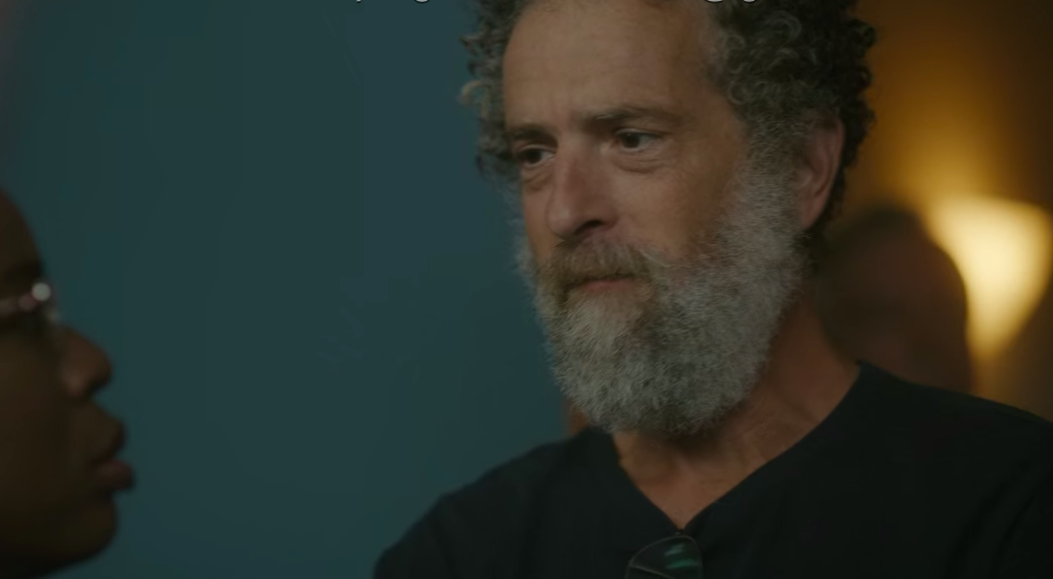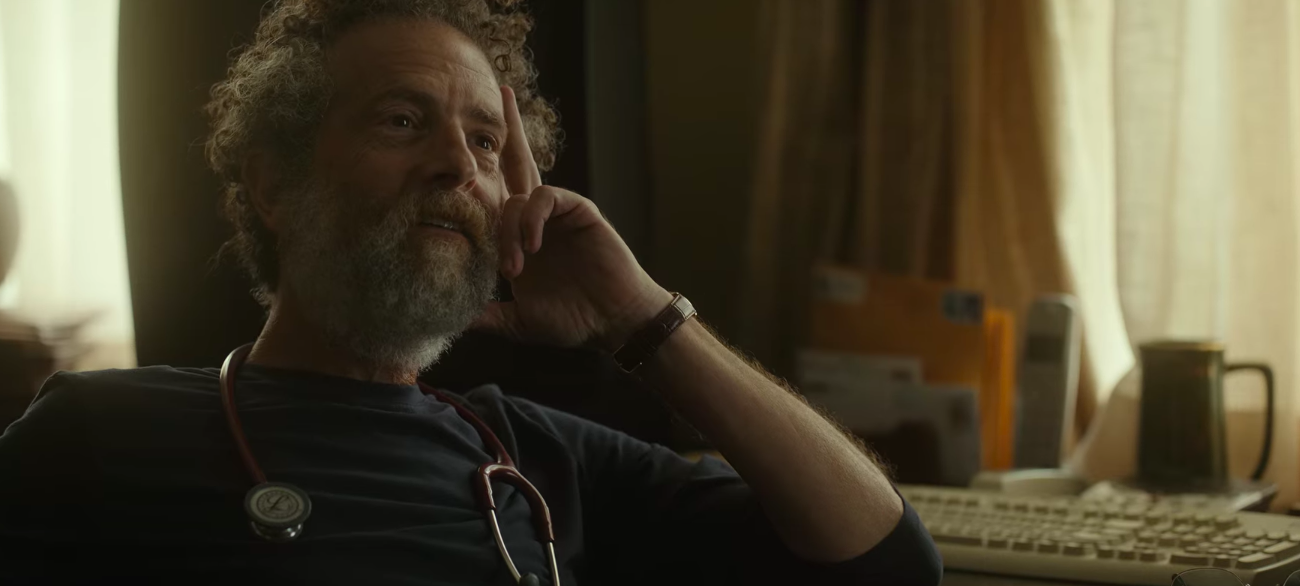Netflix’s ‘Painkiller’ is a fictionalized retelling of one of the worst healthcare disasters in the history of America. Tracing the origins of OxyContin and how it became one of the most misused prescription drugs, leading to the opioid crisis, the show unfolds the narrative from different perspectives to show us all sides of the story. Most of the time and space is claimed by characters like Richard Sackler at Purdue Pharma, who brought OxyContin into the markets and pushed for more widespread use of the drugs, and Edie Flowers, an investigator for the US Attorney’s Office, who stumbled upon OxyContin and the crisis in its initial stages.
We also get to know characters like Dr. Gregory Fitzgibbons, who, despite all the profit promised them by Purdue, refuses to prescribe OxyContin because they know how harmful it can be for the patients. Considering that a lot of characters in the movie are based on real people, you might be wondering if Dr. Fitzgibbons is also based on a real person. Here’s what we know.
Gregory Fitzgibbons is a Fictional Character
In telling the true story behind ‘Painkiller,’ the show’s creators changed a few names and made some creative choices that have led to changes from how things happened in real life. This has led to the creation of characters like Dr. Fitzgibbons, who is fictional but inspired by the real people who worked hard to fight the opioid crisis. The doctor represents all the medical professionals who stuck their oath to their patients and focused on their well-being rather than focusing on their profits and pushing their patients into addiction.

Of the few people who first came out against OxyContin and Purdue and warned of the impending crisis were Sister Beth Davies, Dr. Art Van Zee, and his wife, Sue Ella Kobak, in a small town in Lee County of rural Virginia. Sister Beth ran a substance abuse clinic, and in the 1990s, she noticed a surge of patients addicted to OxyContin. The same pattern was noticed by Dr. Van Zee when he saw a spike in the number of teenagers overdosing on prescription drugs. At the same time, the number of robberies related to OxyContin also increased.
Dr. Van Zee first found OxyContin as the medication given to cancer patients to help them deal with the pain. However, he also knew that this drug had all the makings of turning into an addictive drug. “Talking to parents or grandparents that were dealing with it in their families, and it really became a virtual tsunami of opioid addiction, and there were so many people affected, so many families that were being uprooted and torn apart by this,” Dr. Van Zee said, talking about the time when he saw reports in the newspaper that talked about the sweeping epidemic.
Dr. Van Zee wrote to the executives of Purdue Pharma, asking them to make changes in OxyContin or to do something else not to make it so easily accessible for use as a recreational drug. In 2001, he was a part of the group that petitioned for the FDA to do something about OxyContin because Purdue wouldn’t. As a result, the company sent some of its representatives to talk with Dr. Van Zee, Sister Beth, and others and tried to settle the whole thing, offering more than $100,000 in return for recalling their petition. Dr. Van Zee and the others didn’t agree to the settlement and kept voicing their dissent against the company and the unregulated nature of OxyContin.
They started a local inpatient addiction treatment facility, which closed after a few years due to a lack of funding. However, this didn’t stop them from continuing to help people. Now in his 70s, Dr. Van Zee runs a community health clinic. Sister Beth ran her treatment center, where she helped people struggling with addiction to heroin and fentanyl. They believe that the only way another crisis like this can be prevented is through transparency and exposing the truth about corporate greed and the failure of government organizations and public officials to keep a check on it. With all this in mind, we can say that the character of Dr. Gregory Fitzgibbons is a composite of all these people who have dedicated their lives to helping others.


You must be logged in to post a comment.